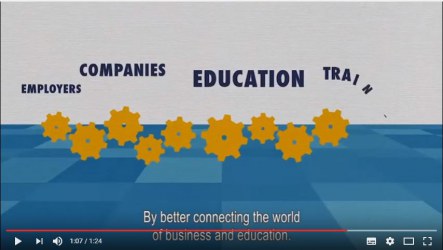The aim is to ensure that people develop a broad set of skills from early on in life and to make the most of Europe’s human capital. The Commission proposes 10 actions to be taken forward over the next two years - Ecsite members will notice the emphasis on digital skills and the focus on promoting entrepreneurial and innovation-oriented mind-sets and skills.
The New Skills Agenda for Europe released on 10 June 2016 aims to improve the teaching and recognition of skills - from basic to higher skills, as well as transversal and civic skills - and ultimately to boost employability. It also aims both to ensure that no-one is left behind and that Europe nurtures the high-end skills that drive competitiveness and innovation. The Agenda therefore contributes to the European Commission's first political priority, "A New Boost for Jobs, Growth and Investment”.
To help tackle skills challenges, the Commission will launch 10 actions which will address these issues and make skills more visible and improve their recognition at local, national and EU levels, from schools and universities to the labour market.
Concretely, the Commission proposes 10 actions to be taken forward over the next two years, some of which will be launched today:
- A Skills Guarantee to help low-skilled adults acquire a minimum level of literacy, numeracy and digital skills and progress towards an upper secondary qualification.
- A review of the European Qualifications Framework for a better understanding of qualifications and to make better use of all available skills in the European labour market.
- The "Digital Skills and Jobs Coalition" bringing together Member States and education, employment and industry stakeholders to develop a large digital talent pool and ensure that individuals and the labour force in Europe are equipped with adequate digital skills.
- The ‘Blueprint for Sectoral Cooperation on Skills’ to improve skills intelligence and address skills shortages in specific economic sectors.
Other actions will be launched later this year and in 2017:
- A "Skills Profile Tool for Third Country Nationals" to support early identification and profiling of skills and qualifications of asylum seekers, refugees and other migrants.
- A revision of the Europass Framework, offering people better and easier-to-use tools to present their skills and get useful real-time information on skills needs and trends which can help with career and learning choices.
- Making Vocational Education and Training (VET) a first choice by enhancing opportunities for VET learners to undertake a work based learning experience and promoting greater visibility of good labour market outcomes of VET.
- A review of the Recommendation on Key Competences to help more people acquire the core set of skills necessary to work and live in the 21st century with a special focus on promoting entrepreneurial and innovation-oriented mind-sets and skills.
- An initiative on graduate tracking to improve information on how graduates progress in the labour market.
- A proposal to further analyse and exchange best practices on effective ways to address brain drain.
More : read the press release and go through the memo.

